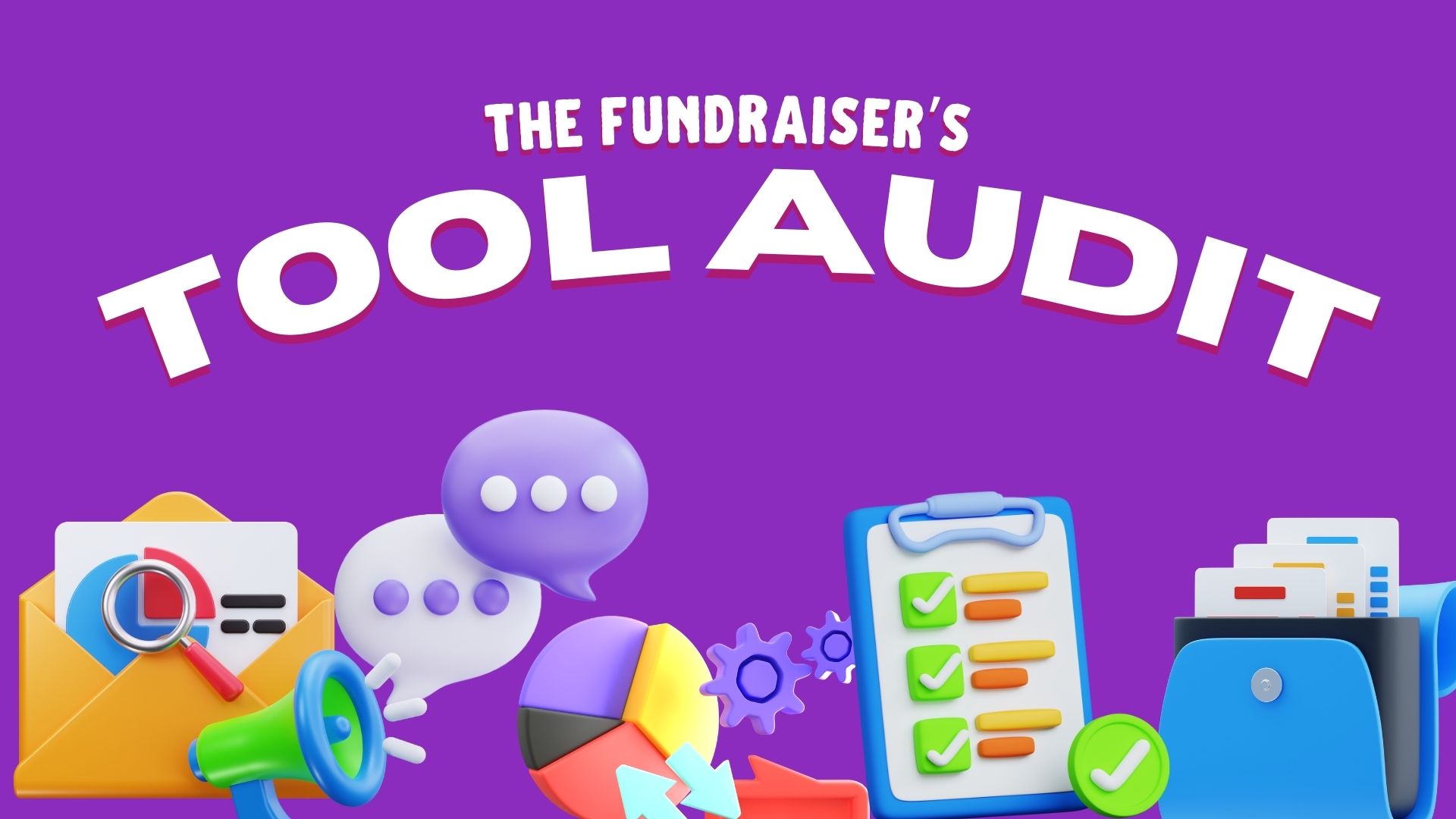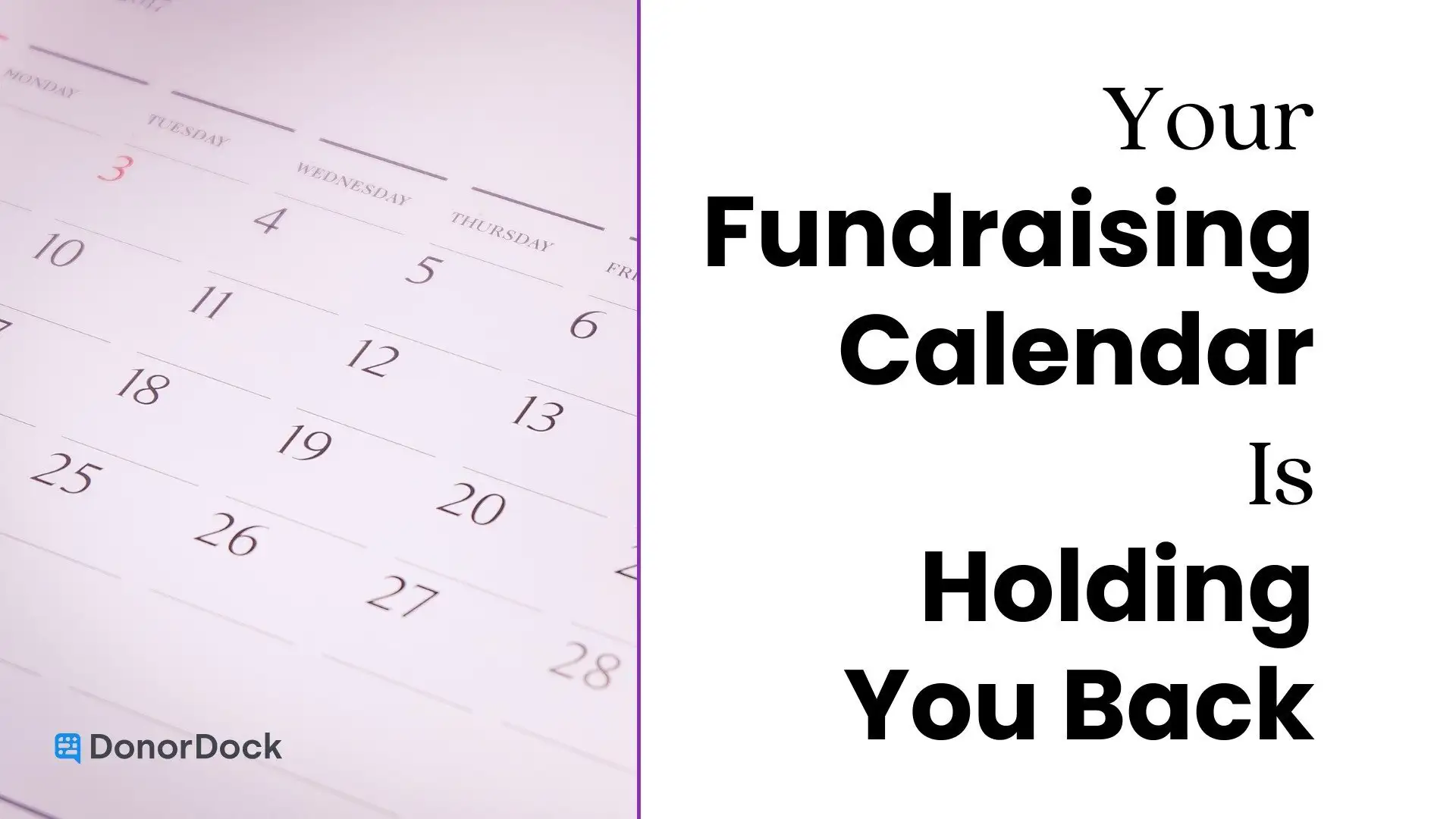As the end of the year approaches, things start to feel hectic for your nonprofit: annual reports, contribution statements, tax filings; the list seems endless! To-do lists get longer. The days are shorter. There are more family gatherings and personal things to attend to as well. And your checklist starts to feel daunting!
How do you decide where to put your time and energy, so you are making the most of your end-of-year? Certain items on the year-end checklist are obligatory, but it’s important not to neglect the tasks that contribute meaningfully to donor engagement and celebrate the relationships your nonprofit has formed.

What Annual Filing and Annual Reports are Required for Nonprofits?
Disclaimer: The resources in this article do not constitute legal advice and are intended as educational background only. If you have additional questions about tax or legal filings, ask qualified professionals for guidance on what federal and state filing obligations apply to your nonprofit.
Federal Annual Filing
The IRS requires organizations exempt from taxation under section 501(a) to file their annual reports. These include Form 990 or Form 990-PF returns electronically unless covered by one of the exceptions.
Utilizing resources such as the IRS’s website can ensure you have the right information in your hands. The IRS News Release regarding tax-exempt organizations is a great example. They link the requirements and other helpful links to the forms and information.
State Annual Reports and Filing
Each state's law may vary, but most necessitate nonprofit corporations to verify or update their basic contact information, including mailing address, names of parties responsible and registered agent. Organizations such as The National Council of Nonprofits offer useful links to the relevant state agencies. It is recommended that the requirements for the registered state of the nonprofit be reviewed.
Donor Contribution Statement
In addition to required filings, the IRS also requires a written donor contribution statement, which is an acknowledgment of a donor’s charitable giving. It’s important to make sure that your nonprofit is following IRS requirements for annual reports and communication with donors.
IRS Requirements
The written acknowledgment required to substantiate a charitable contribution of $250 or more must contain the following information:
- the name of the organization
- amount of cash contribution
- description (but not value) of non-cash contribution;
- a statement that no goods or services were provided by the organization if that is the case;
- description and good faith estimate of the value of goods or services, if any, that organization provided in return for the contribution; and
- a statement that goods or services, if any, that the organization provided in return for the contribution consisted entirely of intangible religious benefits if that was the case.
In addition, a donor may claim a deduction for contributions of cash, check, or other monetary gifts only if the donor maintains certain written records.
Annual reports as an opportunity for donor engagement
Yes, sending annual reports and donor contribution statements is legally required, but they can be more than just another task on your checklist! Use your nonprofit’s annual reports as an opportunity to remind your donors about your nonprofit's mission impact and to say “thank you” to your volunteers and supporters. If you effectively highlight the stories of change and impact that your donors’ gifts have enabled over the year, you build trust in your nonprofit.
Donors want to see transparency and honesty from nonprofits. They want to know that you are accomplishing what you set out to and are being wise with their money. They want to feel a part of the work that you are doing. Your annual reports can be a great opportunity to invite your donors into further partnership with you.
But, what elements are necessary to make a nonprofit annual report compelling?
1) Remember your audience
First, ask yourself, “Who am I addressing with my annual reports?” Typically these are sent to donors, stakeholders, volunteers, foundations, and corporate sponsors. When you understand who your annual reports are being sent to, you’ll be better able to tailor your reports. You want your contribution statements to connect meaningfully with your audience and that often means presenting your information differently for each group. In short, consider who you are addressing so you are thoughtful in how you are creating your annual reports and contribution statements.
2) Keep it compelling
Annual reports should provide your nonprofit’s mission statement, an overview of your accomplishments from the year, and financial reports, but it’s important to tell a story as well. Including photos alongside a story of impact brings home to your donors the good work being done through their donations. The story should be short with evocative language and show change. Additionally, you can include meaningful data through infographics.
For example, an animal rescue might share the story of an individual cat who was in dire condition when they were found. The rescue rehabilitates her and helps her find a loving home. That is a meaningful story of change. Additionally, the rescue also helped 24 animals be reunited with their owners, 17 animals find a new home, and provided food and shelter for 60 animals over the course of the year. This could be a compelling infographic.
3) Show your appreciation
Additionally, you want to show your genuine appreciation for your donors. Take time to acknowledge the time and financial support you’ve been given over the year. Thank your contributors. Use your annual reports and donor contribution statements as a way to acknowledge that the work you are doing couldn’t be done without your donors. They are an integral part of the realization of your mission.
4) Cast the vision for what lies ahead
Let your contributors know what you plan to accomplish in the upcoming year. Set the stage for the changes you want to see happen in your community and invite them into the dreaming and planning process. This is a great opportunity to invite them to partner with you here and now, and also in the year ahead. Many nonprofits take this opportunity to make a final appeal to close out the year.
Through transparency and candor, annual reports are a great way to build trust with stakeholders, demonstrate the impact of the nonprofit's activities, say thank you, and make a final year-end appeal.

How Should I Deliver Annual Reports?
It may not be a one-size-fits-all all format for your targeted audiences. Perhaps your board members tend to prefer a printed report, but you have a younger demographic of donors who like being communicated with digitally. It’s okay to use different formats so that you effectively reach each demographic.
Printed Full Report
A printed full annual report may work best for stakeholders, major donors, and corporate sponsors. This full-length document filled with helpful information and data needs to still be engaging. Consider including first-person stories, visuals, graphics, and detailed information. A full annual report gives you the opportunity to dive deeper and provide more information to your major stakeholders. You’ll still want to include your appreciation for their donations and give them vision and opportunities to continue supporting your mission.
Printed Self Mailer
A sealed self-mailer is a great option for an annual report. This format, which typically consists of two to four pages with pictures, graphs, and infographics, can prove beneficial to community supporters, sponsors, and donors. In order to be effective, the self-mailer should contain relevant information and data while also being visually appealing and easy to read.
Printed Postcard
Another appealing printed option for a quick annual report is a postcard. This medium can be sent to a wider audience such as community contacts and volunteers. Similar to a self mailer, the postcard should be visually appealing. In contrast, a postcard will only include the most valuable metrics and data. Postcards are an easy to create and cost-effective printed option.
Digital Options for Annual Reports
Digital annual reports are a great option for all of your donors and supporters. Not only are the cost effective, accessible, and easy to create, they also allow you to track how your donors engage with them. By tracking open and click rates, you’ll have a clearer understanding of which stories and data resonate with your donors.
Digital reports let nonprofit fundraisers integrate engaging and interactive aspects into their reports, which can be more appealing than static or printed documents. With a digital option, you can include social media posts or videos from the prior year that compliment your storytelling and photos, and couple it all to engage donors for longer periods of time.

Ready to simplify your annual reports and donor contribution statements?
With a donor development platform like DonorDock, all your supporters’ data is gathered in one place and can easily be segmented just the way you need! Whether you go with ready-made report templates or design your own, DonorDock saves you time and makes your job easier. When it's time for those year-end donor contribution statements, DonorDock helps you connect with your donors to show your appreciation. Plus, you can effortlessly keep your supporters in the loop about what's happening in your org. Try DonorDock out and simplify your giving!











